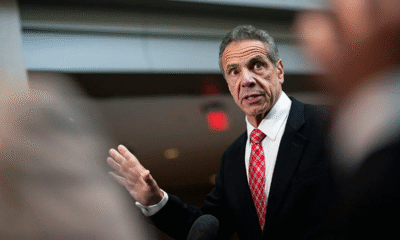INTERNACIONAL
Trump DOJ to begin handing over Epstein files to House Oversight investigators
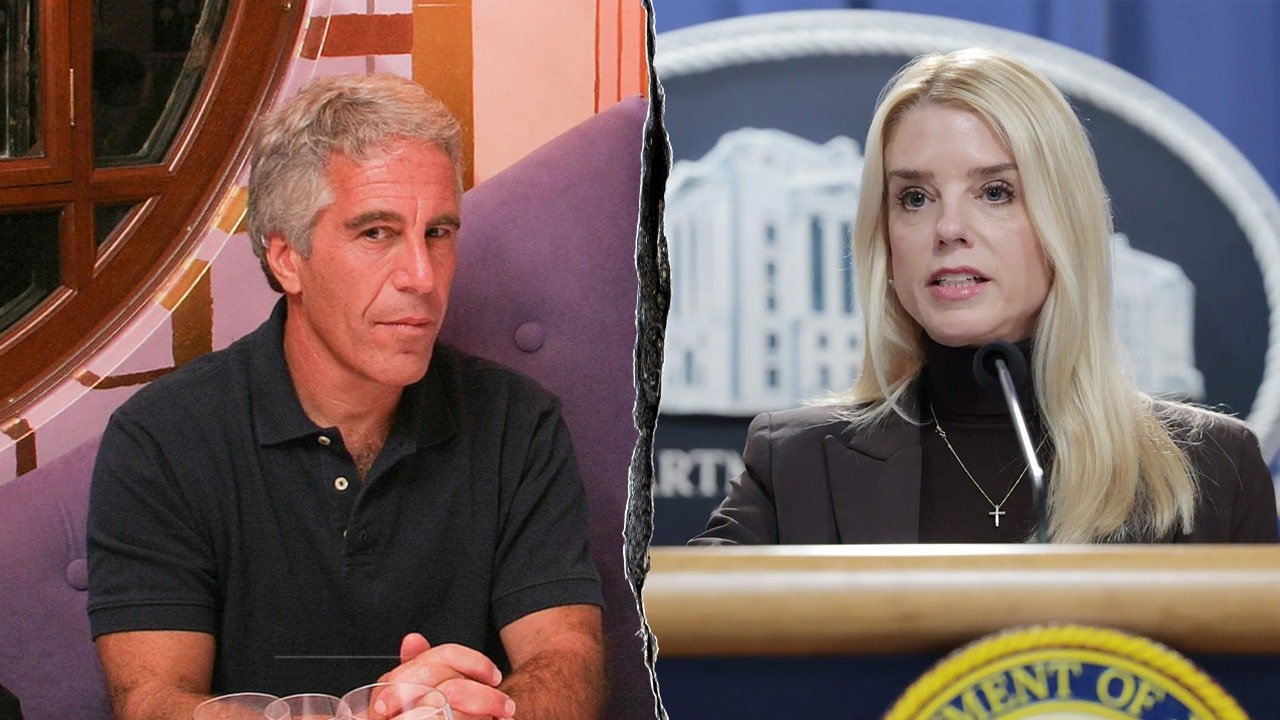
NEWYou can now listen to Fox News articles!
The Department of Justice (DOJ) is set to begin turning over documents related to Jeffrey Epstein to the House Oversight Committee Friday.
Committee Chair James Comer, R-Ky., told reporters Thursday that he had no timeline for when materials would be sent over, but confirmed he still expected files Friday.
Comer suggested that documents would be made public at some point after being assessed by the committee.
«We’ll work as quickly as we can…this is sensitive information,» the Kentucky Republican said in response to Fox News Digital asking about a timeline for a wide release.
«We want to make sure we don’t do anything to harm or jeopardize any victims that were involved in this. But we’re going to be transparent. We’re doing what we said we would do. We’re getting the documents. And, I believe the White House will work with us.»
GOP LAWMAKERS CLASH OVER STRATEGY TO AVERT GOVERNMENT SHUTDOWN CRISIS
Attorney General Pam Bondi is facing a Friday deadline for handing over files related to Jeffrey Epstein to the House Oversight Committee. (Rick Friedman Photography/Corbis;Getty Images)
Comer was directed to subpoena the DOJ for materials related to Epstein’s case via a bipartisan vote by committee members last month.
The subpoena deadline, originally set for earlier this week, was moved to Friday in an effort to accommodate the Trump administration – which Comer said was complying with his request.
«There are many records in DOJ’s custody, and it will take the Department time to produce all the records and ensure the identification of victims and any child sexual abuse material are redacted,» Comer said on Tuesday. «I appreciate the Trump administration’s commitment to transparency and efforts to provide the American people with information about this matter.»
GOP GOVERNOR NOMINEE PUSHES REDISTRICTING TO OUST STATE’S LONE HOUSE DEM
He told reporters Thursday that he believed there were «hundreds and hundreds of pages» of documents in existence.
«It’s just a matter of getting it together and reviewing it, which I’m sure the Department of Justice is doing as we speak,» Comer said.
Requested materials included all documents and communications in the DOJ’s possession relating to both Epstein and his accomplice Ghislaine Maxwell, as well as files «further relating or referring to human trafficking, exploitation of minors, sexual abuse, or related activity,» according to a subpoena viewed by Fox News Digital.
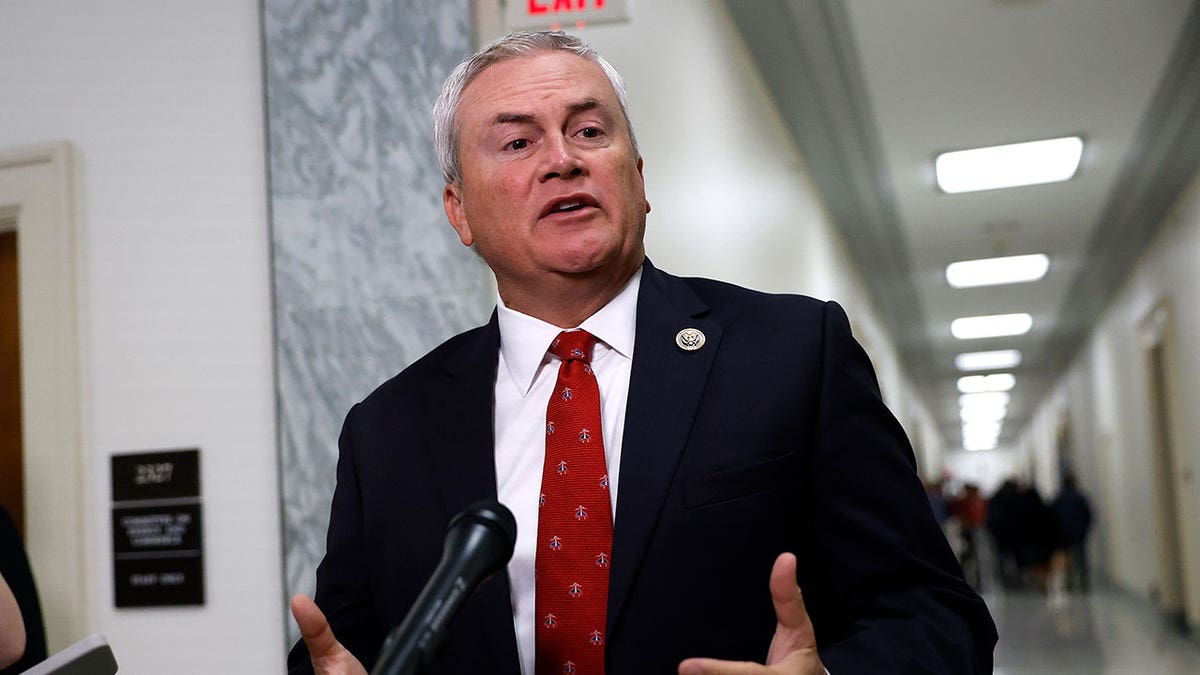
House Oversight Committee Chair James Comer is leading a probe into Jeffrey Epstein’s case. (Kevin Dietsch/Getty Images)
Documents relating specifically to the DOJ’s prosecutions of Epstein and Maxwell, Epstein’s 2007 non-prosecution agreement with federal prosecutors in Florida, and any materials related to Epstein’s death were requested.
Renewed furor over Epstein’s case engulfed Capitol Hill after intra-GOP fallout over the Trump administration’s handling of the matter.
The DOJ effectively declared the case closed after an «exhaustive review,» revealing Epstein had no «client list,» did not blackmail «prominent individuals,» and confirmed he did die by suicide in a New York City jail while awaiting prosecution.
In response to the backlash by some on the right, President Donald Trump and his DOJ have sought to take steps to make more information public.
Democrats seized on the backlash with newfound calls for transparency in Epstein’s case, prompting some on the right to accuse them of hypocrisy for not pushing the matter earlier.
When asked about that divide, House Oversight Committee member Rep. Jasmine Crockett, D-Texas, told reporters that Epstein’s case was not a priority for Democrats in the same way it was seen by the GOP.

Rep. Jasmine Crockett said Epstein’s case was not something that was previously «front and center» for Democrats. (Anna Moneymaker/Getty Images)
CLICK HERE TO GET THE FOX NEWS APP
«I can tell you that Democrats, when they went out there and campaigned, they campaigned on costs, whether it was housing costs, whether it was food costs or whether they were campaigning on children, being able to get the education that they deserve in this country. This wasn’t a promise that we made. So this was not something that was front and center,» Crockett said.
«I don’t see anything wrong with the fact that we were trying to do everything that we could to prevent our economy from being where it is right now. But ultimately, when people voted, they’re telling us that they voted for this particular reason. It’s important that we follow up.»
Fox News Digital reached out to the DOJ for comment but did not hear back by press time.
jeffrey epstein,justice department,house of representatives politics,politics
INTERNACIONAL
Evergrande: este es el fin de la otrora más poderosa empresa inmobiliaria de China

El momento pasó sin pena ni gloria. China Evergrande, una promotora inmobiliaria que alguna vez representó la cumbre del poderío económico de China, fue formalmente eliminada de la Bolsa de Hong Kong el lunes.
Evergrande, que hizo su debut financiero en Hong Kong hace 16 años, había sido en un momento la promotora inmobiliaria de más rápido crecimiento en un país rebosante de promesas de ganancias para los inversores. Será recordada como una de las empresas más endeudadas del mundo, cuyo colapso llevó al sistema financiero de China al límite.
La empresa puso a prueba la antigua política de Beijing de «demasiado grande para quebrar» hacia sus compañías más grandes. Rompió su tolerancia al endeudamiento descontrolado por parte de corporaciones gigantes. Y el colapso de Evergrande en 2021, con más de $300 mil millones en deuda, expuso las vulnerabilidades de la economía de China y su dependencia del sector inmobiliario como motor de crecimiento.
Ahora lo que queda es el esqueleto de un gigante corporativo: 1.300 proyectos inmobiliarios aún sin terminar en más de 280 ciudades y cientos de miles de compradores de viviendas que siguen esperando sus departamentos.
Luego está la larga fila de acreedores, desde empresas en China que trabajaban para Evergrande hasta inversores en Londres y Nueva York que apostaron por ella, que aún esperan ser reembolsados.
El año pasado, un juez de Hong Kong ordenó que Evergrande fuera desmantelada. Designó a Alvarez & Marsal, una firma que se especializa en quiebras y que una vez ayudó a disolver a Lehman Brothers, para que se encargara de la tarea.
Un año y medio después de comenzar el trabajo, los liquidadores, dos ejecutivos de Alvarez & Marsal, han dado pequeños pasos para ayudar a los acreedores extranjeros a obtener pequeñas porciones de lo que se les debe.
Los últimos documentos divulgados públicamente por Evergrande demuestran los desafíos.
Los acreedores han realizado cientos de acciones legales contra los proyectos de Evergrande en China y docenas de activos han sido congelados. En algunos casos, los inversores o los gobiernos locales se han hecho cargo de las promociones. Ya es difícil para los liquidadores de Hong Kong recuperar activos para otros acreedores debido a la compleja estructura empresarial de Evergrande con miles de filiales.
Para extraer dinero de lo que queda de Evergrande, los liquidadores tienen que hacerse cargo de cada filial una por una. Alvarez & Marsal ha tomado hasta ahora el control de más de 100 empresas y activos por un valor de alrededor de $3.5 mil millones.
Pero solo se han conseguido alrededor de $255 millones de los $45 mil millones que los acreedores en Hong Kong afirman que se les debe. Y los liquidadores han advertido que incluso el valor de algunos de los activos incautados está en duda, lo que genera «serias dudas sobre las cantidades, si las hay, que en última instancia se puedan obtener en beneficio de los acreedores de la empresa».
Los liquidadores están siguiendo otra vía legal para tratar de extraer dinero de Evergrande: ir tras el expresidente, Hui Ka Yan, su esposa, Ding Yu Mei, y el ex director ejecutivo de Evergrande, Xia Haijun.
Un caso que tiene lugar en Hong Kong, con audiencias a puerta cerrada, ha puesto en la mira activos por valor de $6 mil millones que Hui y otros ejecutivos se pagaron a sí mismos en los años posteriores a la salida a bolsa de Evergrande en Hong Kong.
Es un estudio del exceso de una época pasada en la que la industria inmobiliaria china era más libre. Hasta ahora, el caso se ha centrado principalmente en la esposa de Hui y en Xia. Hui fue detenido en 2023 y las autoridades lo han multado desde entonces con $6.5 millones y lo han acusado de «organizar un fraude».
Una presentación judicial reciente afirmó que Xia, quien fue multado con $2 millones y vetado de los mercados financieros por un importante regulador chino por fraude de valores, está ocultando activos por valor de $24 millones en varias casas y coches de lujo en California.
Una de esas propiedades, en Irvine, tiene un valor de $6.3 millones y fue comprada en abril de 2022, un mes después de que Evergrande retrasara repentinamente sus resultados anuales de 2021 y dijera que los bancos habían incautado préstamos por valor de $2 mil millones, según muestran los documentos judiciales. Varios meses después, Xia renunció por lo que la empresa dijo que había sido un plan para desviar $2 mil millones a una de sus empresas cotizadas en Hong Kong desde una filial.
Apenas unos meses antes de que Xia fuera multado en marzo de 2024, su esposa gastó $14.5 millones en una enorme mansión en Newport Beach, California, según los documentos judiciales. Él ha declarado ante el tribunal que no posee nada que valga más de $6.400.
c.2025 The New York Times Company
INTERNACIONAL
Cuomo calls NYC mayoral rival ‘dangerous,’ warns socialism would be ‘death knell’ for city

NEWYou can now listen to Fox News articles!
Zohran Mamdani is «dangerous,» and socialism would be a «death knell for New York City,» former Gov. Andrew Cuomo told Fox News’ Maria Bartiromo on «Sunday Morning Futures.»
The leading mayoral candidates represent the political divide that has been brewing in the Democratic Party since President Donald Trump reclaimed the White House last year.
Cuomo said this «internal debate» should come as «no surprise,» tying Mamdani to fellow self-described democratic socialists, Rep. Alexandria Ocasio-Cortez, D-N.Y., and Sen. Bernie Sanders, I-Vt., both of whom have endorsed Mamdani’s campaign.
«The primaries get the most active, often on the Democratic side, the most far-left people to come out to vote, and he mobilized the 20- to 30-year-olds, the socialists. The socialist organizations across the country sent volunteers, sent funding,» Cuomo said, rationalizing Mamdani’s Democratic primary win.
NYC OFFICIAL WARNS BUSINESSES WILL FLEE ‘IN DROVES’ IF DEMOCRATIC SOCIALIST CANDIDATE WINS MAYORAL RACE
Former Gov. Andrew Cuomo on Capitol Hill on June 11, 2024, in Washington, D.C. (Al Drago/Getty Images)
The former governor, who is running as an independent candidate after losing to Mamdani in June, said the general election electorate is «much different.»
CITY-RUN GROCERY STORES, DEFUNDING POLICE, SAFE INJECTION SITES: WHAT TO KNOW ABOUT NYC’S NEXT POTENTIAL MAYOR
«New York City people are not socialists,» Cuomo said. «They’re not anti-business people. They’re not anti-corporate people. They want jobs. They want growth.»
«It’s antithetical to New York City to be anti-corporate,» Cuomo said on Fox News on Sunday, criticizing Mamdani and his fellow «socialists» who believe in government freebies, taxing the rich and seizing the means of production.
New York City was «built on capitalism,» Cuomo said.
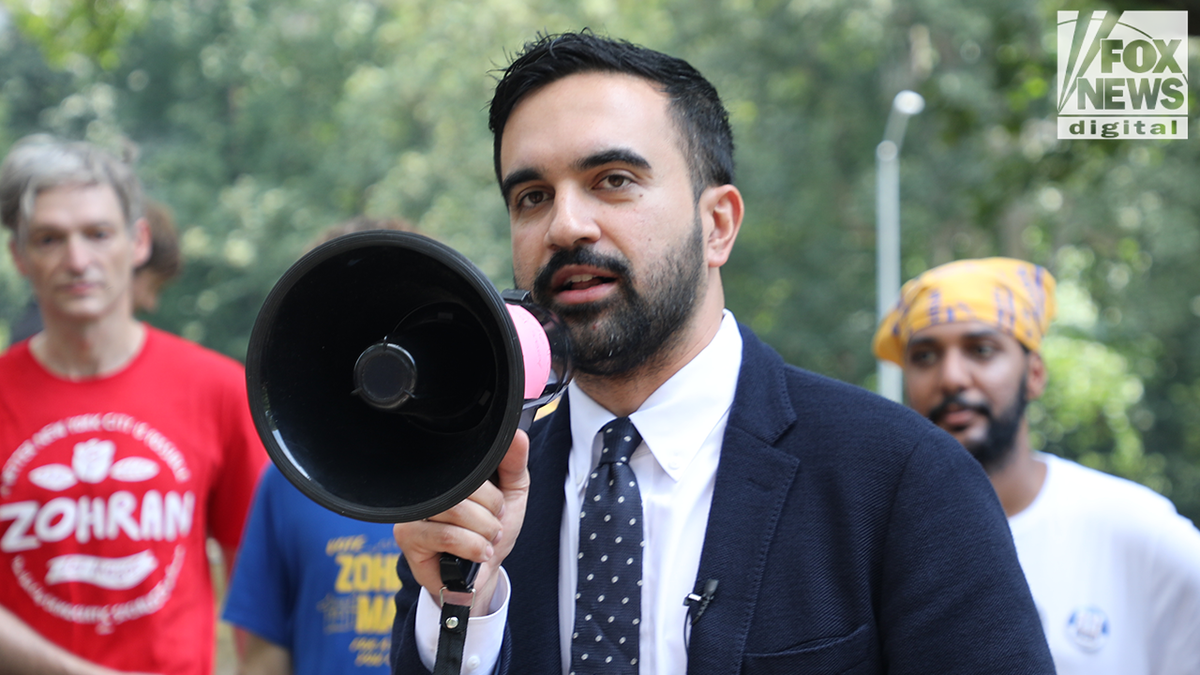
New York City Democratic mayoral nominee Zohran Mamdani spoke to supporters at a canvass launch event in Prospect Park on Aug. 17, 2025. (Deirdre Heavey/Fox News Digital)
Mamdani plans to pay for his ambitious policy agenda, which includes free buses, no-cost healthcare and city-run grocery stores, by raising taxes on the 1% and corporations.
His plan includes raising the corporate tax rate to 11.5% and taxing the wealthiest 1% of New Yorkers 2%, according to Mamdani’s campaign website.
«New York City corporations are already high-taxed, as are the individuals,» Cuomo said. «I think it would be a death knell for New York City, and he is dangerous, frankly, for New York City.»
Meanwhile, Cuomo explained that his «pro-growth development strategy» focuses on attracting and building businesses and is central to Cuomo’s campaign.
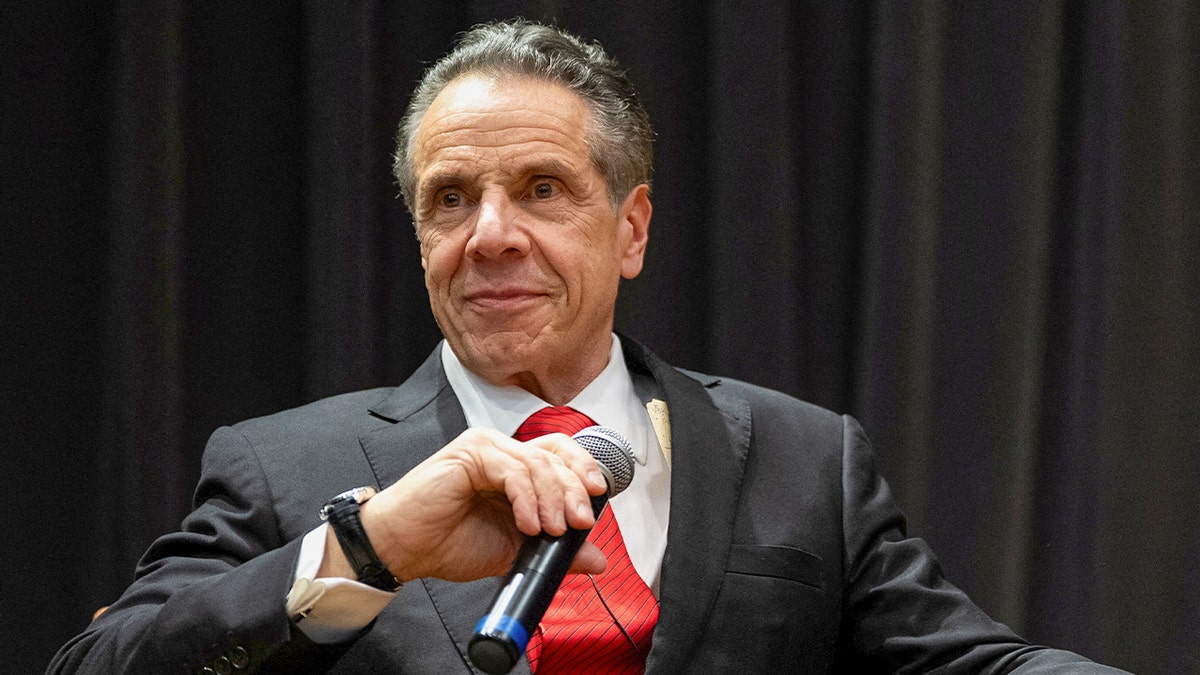
Former Gov. Andrew Cuomo relaunched his New York City mayoral campaign as an independent candidate. (REUTERS/David ‘Dee’ Delgado)
«Too many businesses, as you know, have moved out of New York. So, number one, get more businesses here and grow the businesses that are here,» Cuomo explained.
A Bloomberg study found that 158 companies managing $993 billion in assets moved their headquarters out of New York between 2020 and 2023.
In addition to building businesses in New York City, Cuomo said he is focused on public safety and affordable housing.
«Crime is a real problem in New York City as it is in cities across the country, and New York City exacerbated it. A few years ago, the socialists went through this ‘defund the police,’ this anti-police movement,» Cuomo said.
CLICK HERE TO GET THE FOX NEWS APP
According to Cuomo’s campaign website, the former governor wants to add 5,000 new police officers to the New York Police Department (NYPD). He told Fox News that he plans to add 1,500 officers to the patrol subways.
And to provide more affordable housing, Cuomo said he plans to add 50,000 new units per year, which will «add to the supply and meet the demand.»
Fox News Digital reached out to Mamdani for a response to Cuomo’s comments but did not immediately hear back.
2025 2026 elections coverage,politics,new york city,elections,andrew cuomo
INTERNACIONAL
Computación cuántica modular: cómo funciona el sistema que promete crecer pieza por pieza

Un equipo de científicos en la Universidad de Illinois Urbana-Champaign encontró una manera de conectar piezas de computadoras cuánticas como si fueran bloques de Lego. La idea es similar a cuando, en los años noventa, se armaban computadoras personales pieza por pieza: se compraba un procesador, una tarjeta gráfica, un disco rígido y, al ensamblarlos, se lograba una máquina más potente.
De acuerdo con un artículo publicado en Nature Electronics, el equipo desarrolló una propuesta técnica que busca que los ordenadores cuánticos sean escalables y reconfigurables. En lugar de apostar por un solo bloque grande, cada módulo contiene sus propios cúbits superconductores y puede conectarse a otros mediante cables desmontables. “La arquitectura modular permite superar este desafío mediante un ensamblaje tipo Lego, reconfiguración y expansión, en un espíritu similar al de los ordenadores clásicos modernos”, concluyen los responsables de la investigación citados por la revista.
El sistema utiliza un cable coaxial superconductor como “bus cuántico”, que no solo une los módulos, sino que logra transmitir excitaciones y crear entrelazamiento entre los cúbits de distintas partes. El equipo liderado por Michael Mollenhauer y Wolfgang Pfaff alcanzó puertas SWAP entre módulos con un “1 % de pérdida en menos de 100 ns”. Esta marca resulta decisiva porque logra el rango de error mínimo necesario para que la corrección cuántica funcione y los códigos puedan ejecutarse de forma eficiente.
La propuesta quiere atacar el mayor obstáculo en el sector: pasar de prototipos pequeños a sistemas con millones de cúbits. Los ordenadores tradicionales fabricados en un solo chip resultan difíciles de ampliar y sus operaciones pierden fidelidad a medida que crecen. Los investigadores afirman que su modularidad permitiría ampliar los sistemas al agregar nuevas piezas ya probadas, optimizando el rendimiento sin que dependa de que cada elemento sea perfecto. “El rendimiento global de la máquina no dependerá de que todos los componentes sean perfectos, sino de la capacidad de integrarlos de forma eficiente”, detalla el artículo de Nature Electronics.

Otro logro relevante fue la demostración de que los cúbits de diferentes módulos pueden alcanzar una fidelidad en el entrelazamiento del 97,4 %. Este dato sitúa la propuesta cerca de la fiabilidad de los sistemas de un solo chip y elimina la distancia física como impedimento insalvable. El sistema también posibilita que el cable se quede desmontado y vuelva a conectarse sin que la calidad caiga de manera significativa.
El texto destaca que la filosofía modular devuelve a la computación cuántica una flexibilidad ya habitual en los viejos ordenadores clónicos. Según Pfaff, “la idea es poder construir un sistema que se pueda montar, desmontar y volver a montar, manteniendo al mismo tiempo operaciones de muy alta calidad”. El enfoque permite probar los módulos por separado, detectar fallos antes de integrarlos y efectuar reemplazos sin iniciar el proceso desde cero. Además, los módulos cuánticos se pueden fabricar y testear individualmente, como se hacía con las tarjetas gráficas y discos duros en los años noventa, para luego conectar únicamente aquellos que pasan las más duras pruebas de fidelidad.
La modularidad significa también que el usuario podrá construir redes cuánticas distribuidas. Los científicos aseguran que el nuevo esquema hace posible “la generación de entrelazamiento de alta fidelidad y la operación de un cúbit lógico distribuido”. Varios módulos podrían colaborar como si fueran un único procesador lógico, repartiéndose cálculos complejos entre diferentes unidades.
No todo está resuelto. Según precisaron los autores del proyecto, el conector necesita mejorar para no comprometer la coherencia de los cúbits. Las pruebas actuales indican que esos tiempos —el lapso durante el cual un cúbit mantiene su estado cuántico— son algo menores que en dispositivos convencionales sin cables desmontables. Sin embargo, los experimentos muestran un sistema robusto y capaz de soportar varios ciclos de ensamblaje y desensamblaje sin grandes pérdidas de calidad.

Esta arquitectura tampoco limita la compatibilidad a una sola clase de cúbits. Según la investigación, “nuestro interconector no requiere elementos de circuito adicionales más allá de la no linealidad intrínseca de los cúbits, lo que lo hace aplicable también a otros tipos”. Así, el sistema podría adaptarse a innovaciones como los cúbits fluxonium y a máquinas híbridas.
El plan para el futuro inmediato contempla conectar más de dos módulos y mantener la detección de errores y la posibilidad de ampliar el procesador pieza a pieza. El equipo de Illinois proyecta construir procesadores distribuidos capaces de sumar capacidad sin límites, acercando a la tecnología cuántica a la idea de un ordenador competitivo y personalizable como los clónicos que impulsaron la revolución informática de los años noventa.
computación cuántica

 DEPORTE2 días ago
DEPORTE2 días agoChile organizó una colecta para que la familia del hincha que fue operado por fractura de cráneo pueda viajar a la Argentina

 CHIMENTOS3 días ago
CHIMENTOS3 días agoConfirmado: Susana Giménez vuelve con un programa de los más esperados

 DEPORTE2 días ago
DEPORTE2 días agoEl fútbol chileno se solidarizó con la U tras los graves incidentes que se registraron ante Independiente



